-
What Really Happens During a Personal Injury Jury Trial?
After filing a car accident lawsuit in the Baltimore area, your injury attorney and the counsel for the defendant will likely negotiate a settlement. Most accident injury lawsuits are settled out of court. You’re not obligated to accept a settlement offer, of course, but if you do, it means you’ll accept a sum of money in exchange for dropping the lawsuit. If a settlement arrangement doesn’t work out, your lawyer will talk you through each step of the trial process.
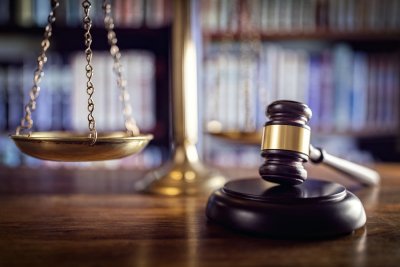
Jury Selection
The first stage of a personal injury trial is the selection of the jurors. This is the process by which potential jurors are questioned about matters that might unfairly influence the verdict, such as their ideological beliefs, affiliations, and past experiences. The judge will have the opportunity to ask questions. Both parties have a limited number of challenges that they can use to dismiss certain jurors.
Statements
When the trial starts, your injury attorney and the lawyer for the defendant will make opening statements. These are brief, oral arguments that do not involve presenting physical evidence or questioning witnesses. Similarly, toward the end of the trial, both attorneys have the opportunity to make closing statements, which are final arguments.
Evidence
The main phase of the trial is the questioning and cross-examination of witnesses. The attorney for each party has the opportunity to call witnesses to the stand and question them under oath. After an attorney has questioned his or her own witness, the other attorney can question that witness in a process called cross-examination. Afterward, the first attorney may decide to question his or her witness again. This is known as re-direct examination, and it’s an opportunity to try to correct any problems that may have developed during the cross-examination. During the questioning of witnesses, the attorneys can also introduce physical evidence, such as medical records, photographs, or surveillance footage.
Jury Deliberation
Once all the witnesses have been questioned and the attorneys have made their closing arguments, the judge issues instructions to the jury. The jurors go to a private area for deliberation. This is a process that allows the jury to discuss the case and the evidence, and vote on a verdict. Jury deliberation may be very quick, lasting only an hour or two, or it may go on for days or weeks. If the jury does not find in your favor, you may decide to talk to your attorney about filing an appeal.
““
-
Common Questions About Insurance and DUI Convictions
Getting arrested on suspicion of drunk driving is a serious matter. A DUI conviction can lead to many more problems than simply a fine and some time behind bars. If you’re convicted, you could face long-term consequences, including higher insurance rates and problems finding a job due to your criminal record. It’s in your best interests to get in touch with a DUI lawyer in Baltimore as quickly as possible. Remember not to answer any of the police officers’ questions about your alcohol use until you speak with a lawyer.
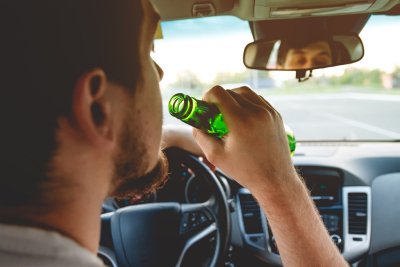
What insurance problems may occur after a DUI conviction?
It’s common sense that your motor vehicle insurance premiums would increase considerably after a DUI conviction. After all, drunk drivers are often repeat offenders, and having this type of criminal history substantially increases the risk of a major car wreck. Some people convicted of DUI find that their current auto insurance carrier refuses to renew the policy, forcing them to look elsewhere for a company that will accept a questionable driving history. But beyond auto insurance, DUI convictions can have an impact on other insurance policies, such as life insurance. After a DUI conviction, you may have a hard time finding a life insurance carrier that will insure you. If you do, you can expect to pay high premiums.
Why do life insurance companies care about my criminal record?
Life insurance companies care about your DUI conviction because it speaks to your overall health and safety. They know that drunk drivers are likely to be repeat offenders, which means there is a possibility that you will die in an alcohol-related crash before a term life policy expires. Drunk drivers are also considered to be risk-takers who may be more likely than the average person to engage in other dangerous behaviors. Furthermore, convicted drunk drivers are more likely than the average person to have existing health problems that may shorten life expectancy, such as cirrhosis or liver cancer.
What about life insurance policies that don’t require a medical exam?
Many convicted drunk drivers assume that life insurance policies that do not require a medical exam will extend coverage at a reasonable premium. However, even if a carrier doesn’t require an exam, it will still check your DMV record.
-
Preventing Noise-Induced Hearing Loss in the Workplace
Occupational hearing loss is a significant risk for employees and a common cause of workers’ comp claims. Fortunately, there are many things you can do to protect your hearing at work. If you do suffer hearing loss, contact a workers’ compensation lawyer in Baltimore to determine what steps you should take next.
Start by recognizing the risks at your job. If you work around heavy machinery, at an airport, in landscaping, or as a first-responder, your hearing could be in danger. Once you understand the risks, determine what kind of device, from earplugs to protective headphones, will provide the best protection for your ears at work. Your employer also has a responsibility to provide training about hearing protection and to set workplace rules that require employees to use protective gear as appropriate for the environment if hearing loss is a risk.
If you have suffered hearing loss on the job, talk to a workers’ compensation attorney. He or she can help you determine what steps you should take to get the compensation to which you are entitled.

-
Hospital Staff: Pathogen-Related Dangers to Know
If you work in an environment in which you could potentially be exposed to blood-borne pathogens, then your employer has the responsibility to take certain precautions for your safety. After you’re exposed to pathogens, consider calling a workers’ compensation attorney in Baltimore to see if you should consider legal action.
To find out about the steps both you and your employer must take to protect yourself from pathogen exposure, watch this video. Your employer must provide adequate training to you so that you reduce your risk of exposure and have a procedure in place to deal with a potential exposure should it occur. If you become ill because of pathogen exposure at work, you may have a workers’ compensation claim. Contact a workers’ comp attorney as soon as possible after the incident to protect your rights.
-
Does Your Car Have an Emergency Kit?
If you experience a car accident near your Baltimore home , an emergency kit could be an essential part of mitigating injuries for yourself and your passengers. The right time to think about an emergency kit is now, before a car accident occurs. Here are some tips for putting together a kit that has the things you need in the event of an accident.
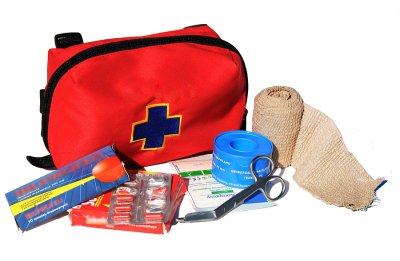
First-Aid Kit
A first-aid kit is the foundation of any good emergency kit. Make sure yours is stocked with Band-Aids, gauze, antiseptic creams and wipes, and aspirin or another pain medication. If your family has special medical needs, these supplies should be in the kit as well. For instance, if someone in your family has diabetes, keep glucose tablets or gel or another non-perishable source of sugar on hand. You will still need to get emergency care after a car accident injury, but having basic first-aid supplies can help you cope with an injury until the first responders arrive.
Basic Repair Tools
Whether after a car accident or during a roadside emergency, having basic repair tools can be handy. Keep things like jumper cables, tire foam, and a multipurpose utility tool in your kit. You should also have things that can assist with repairs and general safety, such as gloves, rags, duct tape, and a flashlight with extra batteries on hand. A tire gauge is also a useful tool.
Charged Cellphone
Having a charged cellphone is essential every time you get behind the wheel. Charge your cellphone every time you get in the car, and keep a spare charger in your emergency kit. Some people find it helpful to have a backup phone with a portable charger in their kit as well. Because you never know what is going to happen on the road, consider programming the number of a car accident attorney into your phone so that you can always reach a lawyer when you have been injured and need to act quickly to preserve your rights.
-
Understanding Shock After a Serious Car Accident
After a car accident, shock is one of the serious conditions that can occur. This life-threatening condition requires immediate treatment, and if you hire an accident attorney in Baltimore to represent you in an injury case, he or she will ask if you were treated for shock as part of preparing for your lawsuit.
Shock occurs when the oxygen that is contained in the blood is not adequate to support the cells. It is associated with low blood pressure and can eventually lead to organ failure if it is not treated quickly. It is possible to have long-term or permanent injuries associated with shock if treatment is delayed. If you experience shock after a car accident, the emergency medical team may use oxygen therapy, IV fluids, blood transfusions, and medications to constrict your blood vessels to attempt to manage the condition.
-
Spotlight on Occupational Diseases
Workers’ compensation cases aren’t always about injuries. Illnesses that occurred in the workplace may also be covered. If you believe you are the victim of an occupational disease, then contact an attorney to see if you should file a workers’ compensation lawsuit in Baltimore .
An occupational disease is a chronic condition that was caused by activities done at work. Some of the diseases that could be occupational in nature include cancer, respiratory issues, hearing loss, and skin diseases. In some instances, depression and anxiety can also fall into this category. If you have such an illness, an attorney can help you determine if your employer could be held responsible and if you should file a workers’ compensation claim. The amount of money to which are entitled depends on a number of different factors, including how your illness impacts your ability to do your job now and in the future and the cost of your medical bills. Your attorney can guide you through the process as well as any necessary workers’ comp appeals that follow your initial claim.
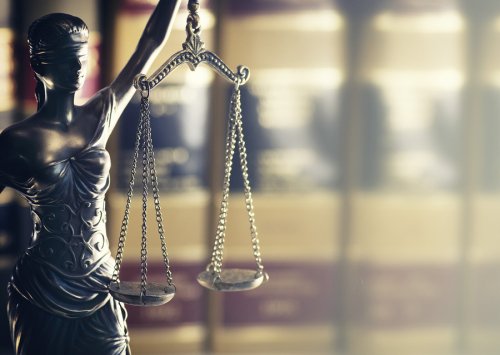
-
A Quick Look at Vocational Rehab
When you consult a workers’ compensation lawyer in Baltimore, you may hear the term “vocational rehabilitation.” Vocational rehab may be available as part of your workers’ comp benefits. Its purpose is to provide you with the services you need to re-enter the workforce. If you aren’t sure whether you qualify for vocational rehab or if you have a disagreement about the services being provided, your workers’ compensation attorney can assist you.

Candidates
Vocational rehab is available to injured employees who are unable to return to their previous work because of a qualifying workplace injury. Even when a person can no longer perform his or her previous work, he or she may be re-trained to fulfill another position. If you cannot return to work in any capacity, you may be a candidate for Social Security disability benefits instead of vocational rehab services. Before receiving vocational rehab services, the workers’ comp insurance carrier must agree that you are qualified to receive them. If your workers’ comp refuses vocational rehab services, talk to your lawyer. He or she may request a hearing to appeal this decision.
Services
The services you can receive are dependent upon your specific needs. Generally, vocational rehabilitation can include aptitude or skills testing, vocational counseling, job training, and job placement services. You might also receive on-the-job training when you begin your new job.
Practitioners
In Maryland, injured workers can turn to either a public or private rehabilitation counselor. Public counselors work through the Maryland Division of Rehabilitation Services (DORS). When you’re assigned a rehabilitation counselor, you must advise him or her of your workers’ comp claim.
Steps
Your vocational rehabilitation will begin with an in-depth interview with your assigned counselor. You can expect to answer plenty of questions about your background, including your education, certifications, professional licenses, and other credentials. You’ll also answer questions about your employment history, and any of your personal interests or hobbies that may influence the course of your future career. The counselor will consider your physical limitations or other aspects of your disability. Based on this information, your counselor will develop a personalized rehabilitation plan that includes actionable, specific goals. If you do not agree that the plan and its goals are appropriate for you, the plan will be submitted to a commissioner.
-
Mistakes to Avoid After a Car Crash
A car accident can be quite stressful, whether it’s a minor fender bender or a major wreck. The stressful nature of these situations increases the likelihood that drivers will make critical errors that may compromise their ability to obtain just compensation. To minimize this risk, it’s important that every driver understand exactly which steps to take and which mistakes to avoid because a car accident in Baltimore can occur at any time.
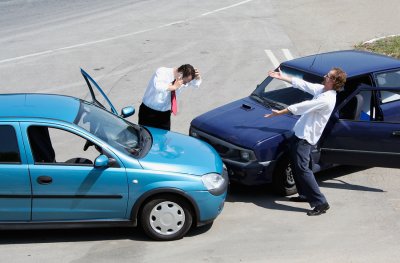
Apologizing to the Other Driver
In the U.S., society tends to view apologies with high regard. It seems natural to apologize in many situations and this isn’t always seen as being an admission of fault. However, in the wake of a car accident, simply saying “I’m sorry,” or “I didn’t see you over there,” may compromise your claim. The other driver and the insurance company may try to claim that this statement is an admission of fault on your part and therefore, your rightful compensation may be denied or reduced. If the other driver displays anger or demands an apology, all you need to say is something similar to “Here’s my accident lawyer’s card. Please direct all of your questions to him or her.”
Making a “Gentleman’s Agreement”
If the car accident is minor and the damage is minimal, the other driver may ask you to make a verbal agreement with him or her to handle the situation without getting the police or insurance carriers involved. Making a gentleman’s agreement is never a good idea and it usually indicates that the other driver doesn’t have insurance. Always file a police report after a crash and notify the insurance company.
Neglecting to Document the Scene Properly
Most people know that they are supposed to exchange insurance information after a car accident. But many fail to take the additional step of documenting the scene. This evidence can be critical in substantiating your claim. Documenting an accident scene is straightforward. Take photos of all involved vehicles, the injuries, skid marks on the road, traffic signs and lights, and other significant features of the area. Ask eyewitnesses to provide their full names and contact information. If they have time, these witnesses may be willing to provide a written, signed statement before leaving the scene. Give your accident lawyer a copy of all of this evidence, as well as the police report.
-
A Plaintiff’s Guide to Scar Revision
The effects from car accident injuries can linger for months. Sometimes, they may even be permanent. If you were in a car accident and now have disfiguring scars, it’s well worth your time to speak with an accident lawyer in Baltimore about your legal right to seek compensation. Because of the permanent nature of your disfigurement, higher compensation is possible. In addition to pain and suffering damages, you may seek compensation to cover the cost of scar revision surgery.
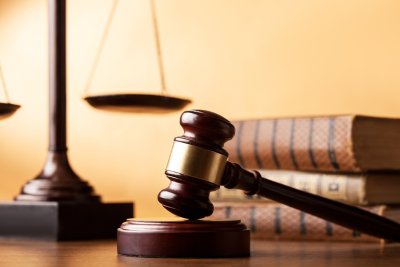
Deciding to Have Scar Revision Surgery
Unfortunately, not all severe scars can be improved through surgery and no scar can be completely “erased.” Disfiguring scars such as keloid, hypertrophic, and contracture scars are the most common types to be treated surgically. It’s best to speak with a surgeon about the possibility of scar revision while your claim is still pending or even before your accident lawyer files it. If it isn’t possible to improve the disfigurement, you might seek greater compensation for the loss of earning capacity and other long-term problems. If scar revision is right for you, the medical provider will determine which type of procedure would be most effective. For instance, Z-plasty and other tissue rearrangement techniques may be used for contracture scars. This approach can reduce the pressure that these scars exert. Tissue expansion and skin grafts are other possibilities.
Preparing for the Surgery
Like all medical treatments, scar revision is not without potential risks. It’s important that you fully understand the potential risks and discuss your concerns with the surgeon. Your specific preparation instructions will depend on the type of procedure and your overall health. You may be asked to stop taking certain medicines or supplements and, if you smoke, you will need to quit. You should also have a recovery plan in place before you have the procedure.
Recovering from the Procedure
Every patient’s recovery is different and you should always follow the instructions provided by your care team. In general, patients can expect to rest at home while they recover. Someone may need to assist you for a few days. Avoid consuming alcohol and only resume driving, exercising, and similar activities once your doctor clears you to do so.
““
RECENT POSTS
categories
- Uncategorized
- Worker's Compensation
- Attorney Fees
- Auto Accident Injury Whiplash
- Attorney Review
- Personal Injury
- Social Security Disability
- DUI
- Workplace Injuries
- Auto Accident
- Workers Compensation Claims
- Permanent Disability
- Infographic
- Drunk Driving
- Wrongful Death
- Works in Maryland
- Uninsured Motorists
- Motorcycle Crashes
